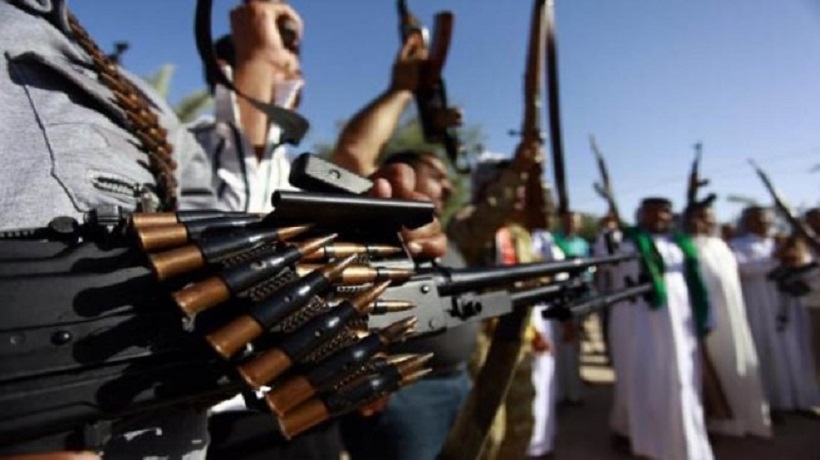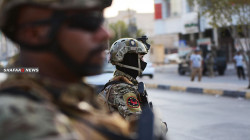Basra man faces tribal pressure after suing robbers

Shafaq News/ A resident of Basra's al-Jazeera district, who identified as S, is facing pressure from tribal figures to drop charges against the individuals who robbed him and his friends at gunpoint in late February 2024.
Mr. S and his companions were reportedly accosted by two armed robbers who emerged from a small boat near the Shatt al-Arab River. The group resisted the robbery attempt, leading to an altercation that left one of Mr. S's companions injured by a gunshot from a hunting rifle. The robbers were subsequently apprehended and taken into police custody.
Speaking to Shafaq News Agency, Mr. S complained from an ongoing social pressure to settle the matter outside the legal system, stating, "Since the incident, we've been subjected to pressure to forego pressing charges. We've completed the complaint process and await the court's decision. If I drop the case, they might target others."
The incident sheds light on the persisting tribal customs and traditions in Iraq, which can sometimes hinder the pursuit of justice through official channels. Cases involving theft and even murder often see perpetrators and victims resorting to tribal mediation outside of courtrooms. These negotiations may involve settlements allowing parties to avoid legal proceedings or potentially lead to reduced sentences in certain serious offenses.
Mr. S's case is a minor example for the complex interplay between formal and informal systems of justice in a country where many citizens are convinced that the legal system doesn't offer equal access to justice for all citizens amid rampant corruption and politicized punity. Tribal pressure might amount to threats in some cases, especially when the plaintiffs insist on navigating the official legal system to address their plight.
Following the 2003 US-led coalition invasion of Iraq and subsequent de- Baathification process, Iraq was left with a distinct lack of security. Widespread looting, kidnappings and other crimes spread across the country because no firm security sector was in place.
The security gap allowed an assortment of non-state actors to fill that role. A mix of terrorist groups, militias and tribes took advantage of the situation. The majority of Iraqi citizens are associated with one tribe or another.
As described by American political scientist Robert Rotberg, a failed state is one that has lost the monopoly over the "means of coercion" over its citizens. By this definition, Iraq is a failed state as non-state actors have increasingly greater powers in Iraq.
The result of such extensive use of violence has led many Iraqis to turn to their tribes for protection. Hayder al-Mohammad, a professor of anthropology at the University of Wisconsin-Madison, said Iraqis proudly boast of their reliance on tribes. Mohammad, writing in 2011, quoted one Iraqi as saying, "You have car insurance, we have tribes."
Across the Arab world, tribes find their roots in the pre-Islamic era, applying tribal law across the region they rule. The presence of tribal law interferes with the state's ability to enforce law and therefore achieve the desired state due to the strong influence of non-state actors.
Within Iraq, tribes have set rules and have associated punishments for each perceived crime. According to Karen Blue Carroll, professor of political science at Vanderbilt University, regarding the tribes of Iraq "there appears to be relatively little variation in the structure, specifics, or processes of law from tribe to tribe, and this facilitates the settlement of disputes between them".
Crimes, according to tribes, vary from showing disrespect for a tribe, such as the pulling of a tribal leader's headwear, to sexist punishments, such as allowing a female non-virgin to marry another tribal member. When committed, such crimes are presented to a tribal council and tribal leaders see if they reach a settlement. The majority of settlements are reached through what is known as fasel — blood money. Should the money not be paid, the victim is threatened with death.
Essentially, crimes are whatever a culprit perceives to be a crime. The consequence of this has led to an environment of fear, especially within the public service sector.
As an example, doctors shy away from risky, but potentially life-saving procedures, for fear of being blamed for the complications. Because of a lack of a state, patients and their families present patient complications to their tribes and doctors are blamed for various complications of the life-saving procedures.
Many doctors reported that their homes have been painted with the words: "In debt of blood". The doctors face either paying the blood money or death. As a consequence, there has been a mass exodus of Iraqi doctors. Those who have not been able to escape the threats have stopped performing risky procedures, putting other patients at risk.
A 2011 study by Carroll stated that since 2003 the average cost of blood money has been steadily rising. Accordingly, some Iraqis see blood money as an opportunity to get relatively easy money by creating problems that they can present to their tribes and claim money for.
In general, the organisation of a tribe is a vertical structure in which tribal decisions are made by a handful of leaders. This kind of system undermines the democratically elected leadership and has a great potential for further corruption.
The effect of tribes on the recent history of Iraq, however, has not always been negative. Through the use of the Awakening movement in 2011, tribal leaders agreed to cooperate with the Iraqi government in bringing an end to sectarian violence and ridding Falluja of terrorist groups.
At various times, the Iraqi government has tried to change the role of the tribes. The British, initially through the Tribal Disputes Act of 1916, which was adopted by King Faisal in 1924, gave permission for tribal law to be enforced across the country except Baghdad. During his presidency, Abdel Karim Qassim expanded the act across the country. However, following the rise of Saddam Hussein, contrary to the Ba’ath party principles, he gave increasing powers to tribes loyal to him following the 1991 uprising.
In a country plagued by corruption, it is not surprising that the citizens of Iraq have looked elsewhere for means of security and stability. The centuries-old tribes are not expected to be defunct anytime soon. However, for the country to achieve true justice, stability and no fear of unjust violent retributions, the Iraqi state needs to create and implement a criminal justice system, preventing citizens seeking justice through their tribes. This cannot be achieved without the faith of the Iraqi people in their government, something that is absent from Iraqi politics.





